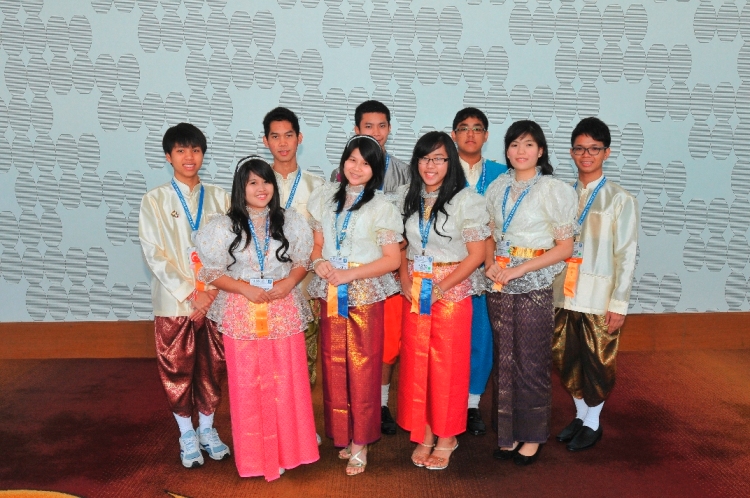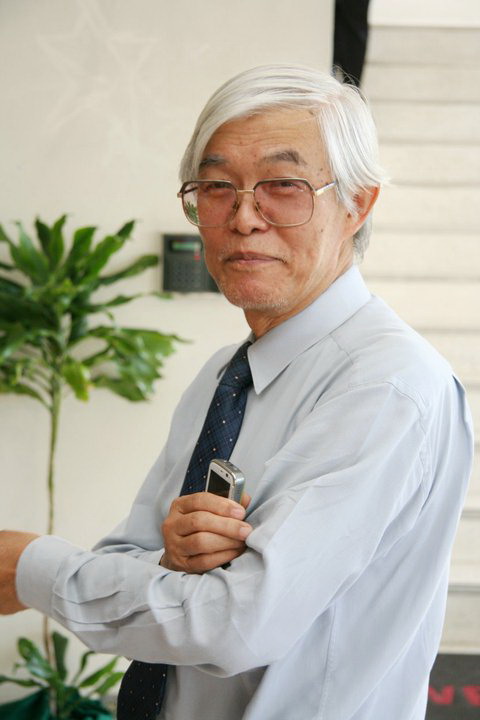คลาวด์คอมพิวติ้ง (Cloud Computing) เทคโนโลยีไฮไลท์ ตอบโจทย์ไลฟ์สไตล์และรูปแบบการทำงานในโลกดิจิตอล

ด้วยความที่คลาวด์คอมพิวติ้ง (Cloud Computing) เป็นเทคโนโลยีที่ตอบโจทย์ ขององค์กรทั้งในเรื่องของการลงทุนด้านเทคโนโลยี เรื่องประสิทธิภาพการใช้งานระบบ และรวมถึงเรื่องของการตอบโจทย์รูปแบบการทำงานในโลกสมัยใหม่ที่สามาาถทำงานได้ทุกที่ทุกเวลา กอปรกับความรู้ความเข้าในของผู้ใช้งานที่มีต่อคลาวด์คอมพิวติ้งที่มีเพิ่มมากขึ้นและให้ความไว้วางใจในระบบนี้มากขึ้น จึงทำให้คลาวด์คอมพิวติ้งยังคงเป็นเทคโนโลยีไฮไลท์ในปีนี้ในภูมิภาคนี้และในประเทศไทย
บริษัทวิจัยไอดีซี (International Data Corporation) ได้คาดว่าคลาวด์คอมพิวติ้งในภูมิภาคเอเชียแปซิฟิก ยกเว้น ญี่ปุ่นจะเป็นเทคโนโลยีที่ได้รับความสนใจอย่างมากในฐานะที่ตอบโจทย์ในเรื่องของการนำเสนอบริการที่สอดคล้องทั้งการให้บริการในปัจจุบันและบริการใหม่ ๆ ทำให้ธุรกิจการให้บริการคลาวด์ในส่วนที่เป็นโครงสร้างพื้นฐานทางด้านไอทีซึ่งจะมีการขยายตัวอย่างรวดเร็วในปี 2554 และจะมีการเสนอบริการคลาวด์ใหม่ ๆ เข้าสู่ตลาด โดยผู้ใช้งานก็เริ่มจะมองการณ์ไกลขึ้นสำหรับการให้บริการพื้นฐานของ Software-as-a-Service (SaaS) และ Infrastructure-as-a-Service (IaaS) เพื่อเป็นแหล่งของการให้บริการเชิงธุรกิจ ซึ่งจะช่วยทำให้องค์กรเสริมสร้าวความแข็งแกร่งของตนเองได้อย่างรวดเร็วในภาวะเศรษฐกิจที่กำลังฟื้นตัว
จากรายงานล่าสุดของไอดีซี เรื่อง “Asia/Pacific (Excluding Japan) Cloud Services and Technologies 2011 Top 10 Predictions: Dealing with Mainstream Cloud” ไอดีซีได้ศึกษาแนวโน้มหลัก ๆ ที่คาดว่าจะส่งผลต่อคลาวด์คอมพิวติ้งกับระบบไอทีในองค์กรต่าง ๆ ของภูมิภาคนี้ในปี 2554 ประเทศในภูมิภาคนี้ยังคงมีความแตกต่างกัน ในหลาย ๆ ด้านเมื่อเทียบกับภูมิภาค อื่น ๆ ทั่วโลก และ แผนงานสำหรับการประยุกต์ใช้งานคลาวด์ในอนาคตจะแตกต่างกันไปตามลักษณะที่ถูกกำหนดขึ้นจากงบประมาณที่จำกัด และ กฎหมายของแต่ละประเทศ
แต่แนวโน้มที่สำคัญประการหนึ่ง ซึ่งส่วนหนึ่งเป็นแรงผลักดันมาจากการฟื้นตัวของเศรษฐกิจ และ อีกส่วนหนึ่งมาจากความพร้อมของการให้บริการคลาวด์คอมพิวติ้ง ซึ่งจะกลายเป็นเรื่องที่คนกลับมาสนใจลงทุนเทคโนโลยีนี้อีกครั้ง เพื่อการปรับปรุงระบบไอทีในองค์กรต่าง ๆ ใช้ผลักดันการเสริมสร้างธุรกิจใหม่ ๆ และยังใช้เป็นตัวเพิ่มขีดความสามารถในการแข่งขันให้กับองค์กรได้
ความพร้อมของการให้บริการคลาวด์เป็นแรงส่งให้กับแนวโน้มดังกล่าวนี้ องค์กรส่วนมากจะมีโครงสร้างไอทีที่มีลักษณะเป็นลำดับชั้น ซึ่งบริการในรูปแบบของคลาวด์ก็จะ เปิดให้บริการตามลำดับต่าง ๆ เช่นกัน ไม่ว่าจะเป็นในรูปของ Infrastructure Platforms และ Applications-as-a-Service แต่เมื่อการให้บริการคลาวด์เริ่มจะถึงภาวะอิ่มตัว ไอดีซี มองต่อไปในเรื่องของรูปแบบของการให้บริการคลาวด์ว่าจะมีความซับซ้อนขึ้น โดยจะมีการรวมเรื่อง ขั้นตอนการดำเนินธุรกิจ การให้คำปรึกษา การออกแบบ และ การบริหารจัดการเข้ามาด้วย
คริส มอริส ผู้อำนวยการฝ่ายวิจัย ด้านเทคโนโลยีคลาวด์และเซอร์วิส ประจำ ไอดีซี เอเชียแปซิฟิก กล่าวว่า หน้าที่ความรับผิดชอบที่สำคัญของ ซีไอโอ จะขยายขอบเขตกว้างขึ้นไปจากเดิม ที่ทำหน้าที่ส่วนใหญ่ในการตรวจสอบผู้ให้บริการในแง่ของประสิทธิภาพการทำงานและการปฏิบัติตามข้อตกลง บทบาทของ ซีไอโอในอนาคตจะมุ่งเน้นเชิงธุรกิจมากขึ้น และจะเน้นเกี่ยวกับการบริหารสัญญาและการสร้างความสัมพันธ์
อย่างไรก็ตาม เทคโนโลยีก็ยังเป็นสิ่งจำ เป็นอย่างแท้จริงเพื่อทำให้ธุรกิจสามารถดำเนินต่อไปได้ ไม่ว่าจะเป็น คลาวด์ส่วนตัว คลาวด์ประเภทไฮบริด หรือ คลาวด์สาธารณะ หรือแม้กระทั่งบนแพลตฟอร์มของไอทีแบบดั้งเดิม เทคโนโลยีก็ยังเป็นศูนย์กลางของการเปลี่ยนแปลงนี้ที่มีผลต่อไอทีที่กำลังถูกมองว่าไม่ก่อให้เกิดบริการใด
ในปีนี้จะเห็นความเคลื่อนไหวของยักษ์ใหญ่ในวงการโทรคมนาคมผนึกกำลังกับยักษ์ใหญ่ด้านซอฟต์เพื่อขับเคลื่อนให้บริการคลาวด์คอมพิวติ้ง เกิด
ขึ้นอย่างแพร่หลายในภูมิภาคเอเชียและในประเทศไทย ตัวอย่างเช่นความเคลื่อนไหวของยักษ์โทรคมนาคม บริษัท สิงคโปร์ เทเลคอมมูนิเคชั่นส์ จำกัด (สิงเทล) จับมือวีเอ็มแวร์ เปิดตัวโซลูชั่นคลาวด์แบบออนดีมานด์ SingTel PowerON Compute ที่ขับเคลื่อนด้วยบริการ VMware vCloud Datacenter Service ช่วยลูกค้าองค์กรประหยัดค่าใช้จ่ายได้ถึง 73 เปอร์เซ็นต์ ซึ่งเป็นโซลูชั่นการประมวลผลไฮบริด คลาวด์ ( Hybrid Cloud ) ระดับองค์กรจะช่วยให้ลูกค้าสามารถอัพเกรดทรัพยากรไอที โดยไม่ต้องเสียค่าใช้จ่ายจำนวนมากหรือรับมือกับปัญหาความยุ่งยากซับซ้อนในการจัดซื้อและจัดการเซิร์ฟเวอร์และ ระบบต่างๆ เพิ่มเติม และดังนั้นจึงสามารถลดค่าใช้จ่ายในการดำเนินงานได้ถึง 73 เปอร์เซ็นต์บริษัทต่างๆ จะสามารถขยายทรัพยากรของโครงสร้างพื้นฐานคลาวด์แบบส่วนตัวที่มีอยู่ไปสู่ระบบคลาวด์สาธารณะได้อย่างไร้รอยต่อ โดยไม่ต้องวุ่นวายกับการติดตั้งและเปลี่ยนแปลงซอฟต์แวร์แอพพลิเคชั่นอีกครั้ง นั่นหมายความว่าลูกค้าจะสามารถใช้ประโยชน์อย่างเต็มที่จากโครงสร้างพื้นฐานไอทีที่ได้ลงทุนไปก่อนหน้านี้ ควบคู่ไปกับการใช้ทรัพยากรคลาวด์คอมพิวติ้งแบบออนดีมานด์บนระบบสาธารณะโดยเสียค่าใช้จ่ายตามปริมาณการใช้งานจริง
อีกตัวอย่างหนึ่ง คือความร่วมมือระหว่าง 2 ผู้นำทางด้านไอที บริษัท ไมโครซอฟท์ (ประเทศไทย) จำกัด และบริษัท ทรู คอร์ปอเรชั่น จำกัด (มหาชน) นำเสนอบริการคลาวด์คอมพิวติ้งสู่องค์กรธุรกิจไทยด้วยบริการคลาวด์คอมพิวติ้งแบบครบวงจร ด้วยดิจิตัลคอนเทนท์ โฮมเอนเตอร์เทนเมนท์ อีเมล เครื่องมือในการติดต่อสื่อสารและการทำงานร่วมกัน
ความร่วมมือระหว่างดังกล่าวสะท้อนให้เห็นถึงความมุ่งมั่นในการพัฒนาคลาวด์คอมพิวติ้งเพื่อช่วยผลักดันให้เกิดการบริการที่มีประสิทธิภาพยิ่งขึ้น และเพิ่มทางเลือกและคุณค่าทางธุรกิจที่มากขึ้นให้กับผู้ใช้งาน ทั้งนี้ การผนึกกำลังดังกล่าวจะช่วยสร้างประโยชน์อย่างมหาศาลให้กับอุตสาหกรรมของประเทศด้วยผลิตภัณฑ์และบริการยุคใหม่ที่ตอบโจทย์ความต้องการของผู้ใช้งานในปัจจุบันได้เป็นอย่างดี ทั้งยังช่วยยกระดับไลฟ์สไตล์และรูปแบบการทำงานของผู้ใช้งานชาวไทยไปสู่การใช้งานทางธุรกิจได้
คาดว่าภายในปีนี้จะได้เห็นรูปแบบความร่วมมือในลักษณะนี้ที่ผนวกกับซอฟต์แวร์ที่หลากหลายทั้งจากในและต่างประเทศกับผู้ให้บริการโทรคมนาคม เพื่อนำเสนอบริการการใช้งานคลาวด์คอมพิวติ้งได้ในหลากหลายช่องทางและอุปกรณ์เพิ่มมากขึ้นอย่างแน่นอน
View :2389


Recent Comments